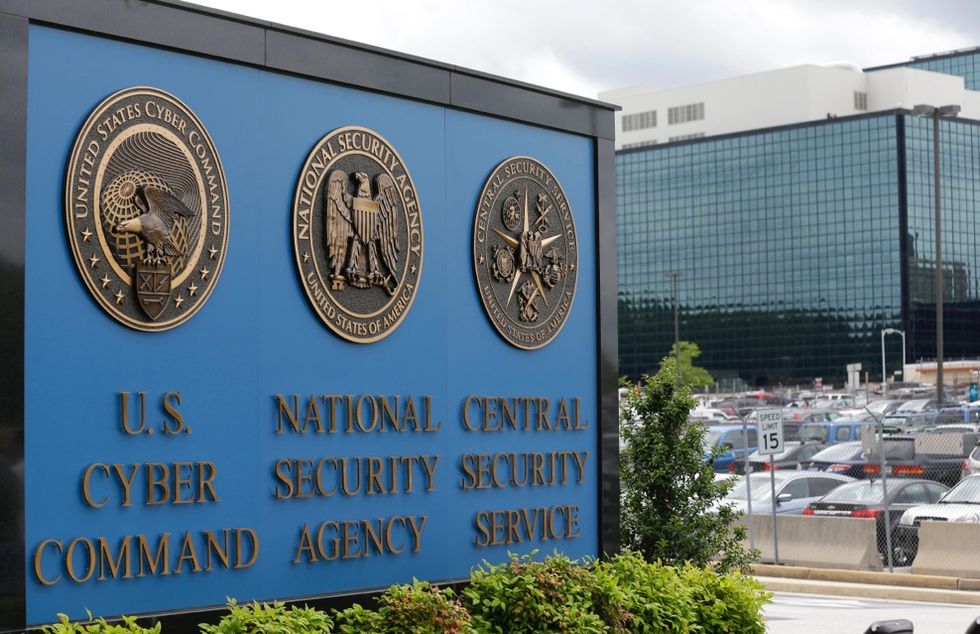
The FBI said it brought into custody Wednesday a suspect who is believe to have been involved in several shootings along Maryland highways within the last two weeks, including one that damaged an NSA building. (AP/Patrick Semansky)

Nearly two years after it was it was revealed that the National Security Agency tapped into phone calls, emails and text messages belonging to millions of Americans, the scandal-embroiled agency has one more problem on its hands: a federal lawsuit.
The ACLU filed the complaint Tuesday in the United States District Court for the District of Maryland, home to NSA's headquarters just outside of Washington, D.C. The suit was filed on behalf of several other groups, ranging from educational, legal, human rights and media organizations.

The Wikimedia Foundation, National Association of Criminal Defense Lawyers, Human Rights Watch, Amnesty International USA, PEN American Center, Global Fund for Women, The Nation Magazine, The Rutherford Institute and The Washington Office on Latin America are the names of the plaintiffs.
The complaint calls the NSA's surveillance "suspicion-less seizure and searching" and claims it is in violation of the First and Fourth Amendments. It alleges the federal government is tapping "directly into the internet backbone" inside the U.S.
"In the course of this surveillance, the NSA is seizing Americans’ communications en masse while they are in transit, and it is searching the contents of substantially all international text-based communications—and many domestic communications as well—for tens of thousands of search terms," the complaint alleges.
The plaintiffs are asking the court to declare the agency's collection of surveillance data to be unlawful and require that the government release their information that it may have already obtained.
The lawsuit cites the Foreign Intelligence Surveillance Courts Amendment Act of 2008, signed into law by President George W. Bush, as having expanded the surveillance powers of the federal government. Then-Sen. Barack Obama voted for the bill, drawing criticism from some within his own party. Despite criticism, Bush maintained the law was "vital" for protecting American lives, Harvard University's Jolt Digest reported.
The ACLU challenged the law in court the same year it was passed, alleging the surveillance practices violated the Constitution. The case went all the way to the Supreme Court, where it was dismissed by a 5-4 vote on the grounds that plaintiffs could not prove they had been spied on.
Five years later, former NSA contractor Edward Snowden blew the whistle on the agency's surveillance practices, which the government later confirmed and has taken steps to restore as much privacy to Americans without compromising national security. So now that the government itself has confirmed the agency's domestic spying, the ACLU's lawsuit on behalf of nine other organizations could be well on its way to the Supreme Court – again.
–
Follow Jon Street (@JonStreet) on Twitter